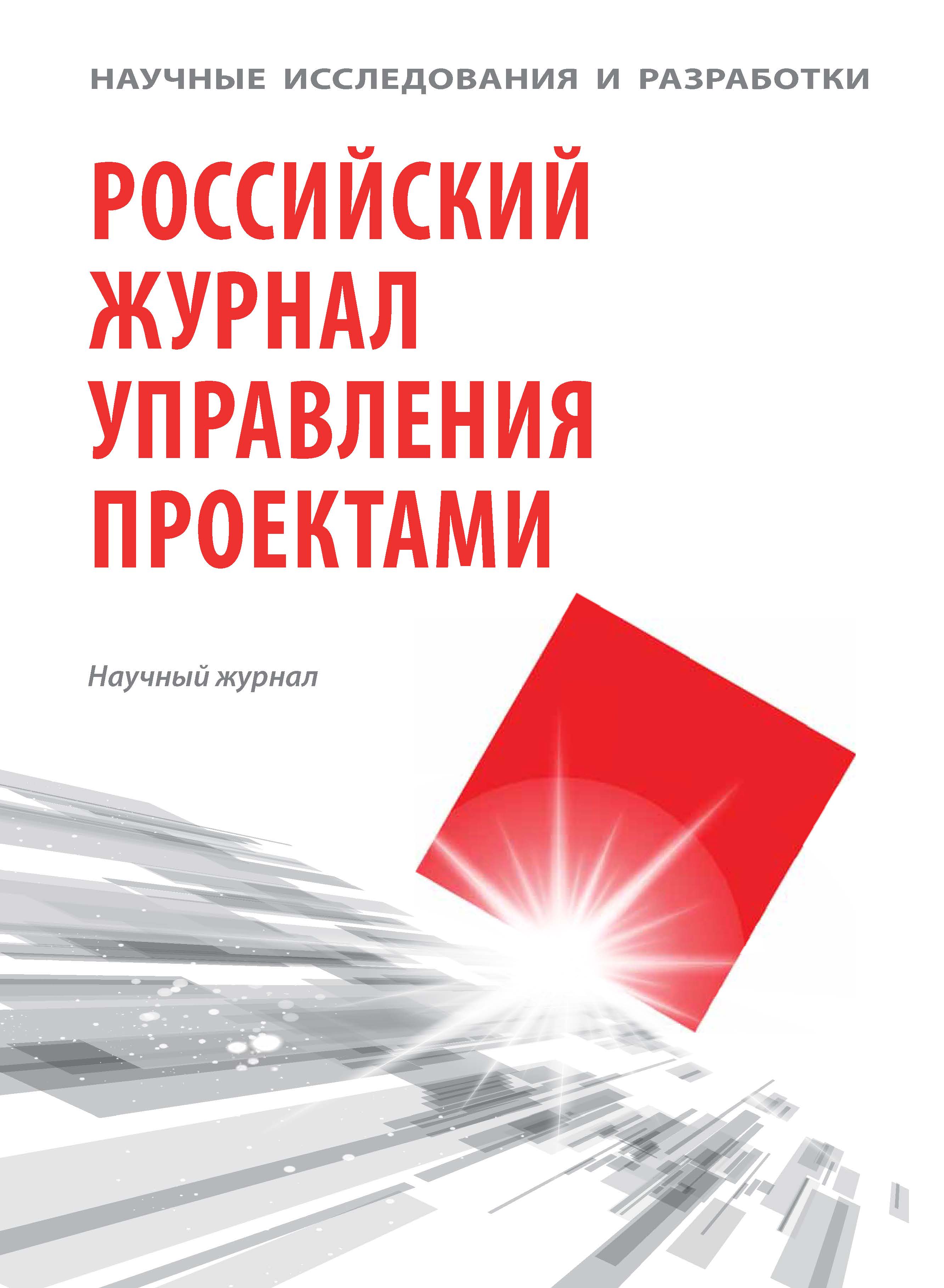с 01.01.2020 по настоящее время
Геленджик, Краснодарский край, Россия
Цель статьи - поднять интерес к проблеме выявления причин нежелания работать в организациях проектного типа. Статья затрагивает следующие вопросы: есть ли сотрудники в проектах, программе и портфеле, которые не хотят работать в таких типах организаций изначально (до начала проекта) или нежелание работать в организации проектного типа появилось во время выполнения каких-либо проектных процессов; каковы причины, по которым такая категория персонала находится во временной проектной организации. К таким причинам могут относиться, например: жизненно важная необходимость; отсутствие на рынке труда иной работы; не устраивают стандарты управления проектами или их несоблюдение и т. д. В статье делается попытка определить, каков процент сотрудников в проектах работает вынужденно, по необходимости? Влияет ли этот процент сотрудников негативно на успех проектов и, как следствие, на успех программ и портфелей? Особое внимание в этой работе посвящено тем категориям сотрудников, которые не хотят работать во временных проектных организациях и негативное влияние данной категории на процессы, элементы и результаты проектных организаций.
нежелание работать/участвовать в проектах, причины нежелания работать, негативное влияние на проект, заинтересованные стороны проекта, Проект, Программа, Портфель
1. GPM P5. (2019) The GPM P5TM Standard for Sustainability in Project Management GPM Global Version 2.0. Published in the United States of America different approach during designing and executing projects. https://mosaicprojects.com.au/PDF-Gen/The-GPM-P5-Standard-for-Sustainability-in- Project-Management-v2.0.pdf
2. IPMA. (2015). IPMA Reference Guide ICB4 in an Agile World Version 2.3. https://www.pma.at/files/downloads/577/ipma-icb4-in-agileworld-v23.pdf
3. Grau, N. Vice President Standards and Awards IPMA - International Project Management Association Technische Hochschule Mittelhessen, Friedberg, Germany. (2012) Standards and Excellence in Project Management - In Who Do We Trust? Published by Elsevier Ltd. Abstract (Grau). https://doi.org/10.1016/j.sbspro.2013.03.005
4. Bodea, C. N. (2020), Improving the design of interpersonal skills modules for IT/MIS curricula: findings from a corpus linguistic research. https://doi.org/10.48009/4_iis_2020_178-186
5. Khedhaouria, A., Montani, F. @ Roy Thurik. (2017). Time pressure and team member creativity within R&D projects: The role of learning orientation and knowledge sourcing. International Journal of Project Management 35 (2017) 942-954 https://personal.eur.nl/thurik/Research/Articles/Time%20pressure%20and%20team%20member%20creativity%20within%20R&D%20projects.pdf
6. Baer, M., (2006). The Curvilinear Relation Between Experienced Creative Time Pressure and Creativity: Moderating Effects of Openness to Experience and Support for Creativity. Journal of Applied Psychology 2006, Vol. 91, No. 4, 963-970 https://www.researchgate.net/publication/6950135
7. Amabile, T.M., Conti, R. Coon, H. Lazenby, J. @ Herron. M. (1996). Assessing the Work Environment for Creativity. The Academy of Management Journal. Published By: Academy of Management http://people.wku.edu/richard.miller/amabile.pdf
8. Amabile, T. M. @ Conti, R., 1999. Changes in the Work Environment for Creativity During Downsizing. Academy of management journal 1999. https://dash.harvard.edu/bitstream/handle/1/37940231/Downsizing-changes-in-the-work-environment-for-creativity-Amabile-Conti-1999.pdf?sequence=1&isAllowed=y
9. Grau, N. (2012). Standards and Excellence in Project Management - In Who Do We Trust? 2013 The Authors. Published by Elsevier Ltd. https://reader.elsevier.com/reader/sd/pii/S1877042813004345?token=2FEB023BFD65A2C4B43643B66A2AB7190DD3E48BF38AECF0453A6F6B5382FF5C3D33BB34421AC3EEEEFFD560B0D47C2C&originRegion=eu-west-1&originCreation=20210826132849
10. David, M. (2007). Cultural Studies, Common Sense and Communications: The infra- ordinary, the interdisciplinary and the particular http://research.gold.ac.uk/id/eprint/11238/1/Cultural%20Studies,%20Common%20Sense%20and%20Communications_David%20Morley.pdf
11. Radujkovic, M. @ Nahod, M-M. (2013). The Impact of ICB 3.0 Competences on Project Management Success. Published by Elsevier Ltd. https://www.researchgate.net/publication/257718805
12. Huemann, M. (2016). HRM in the Project-Oriented Organization. Published 2016 by Routledge 2 Park Square, Milton Park, Abingdon, Oxon OX14 4RN 711 Third Avenue, New York, NY 10017, USA. https://images.routledge.com/common/jackets/originals/978036766/9780367668679.tif.
13. Koops, L., Bosch-Recveldt, M. @ Hertogh, M. (2016). Identifying perspectives of public project managers on project success: Comparing viewpoints of managers from five countries in North-West Europe. 2016 Elsevier Ltd, APM and IPMA. All rights reserved. https://doi.org/10.1016/j.ijproman.2016.03.007
14. Imam, H. (2021). The roles of knowledge sharing, cohesion and trust in the team. 2021 Elsevier Ltd, APM and IPMA. All rights reserved. https://doi.org/10.1016/j.ijproman.2021.02.006
15. Chen,Y.L. @ Lin, Y.L. (2018). Goal orientations, leader-leader exchange, trust, and the outcomes of project performance. 2018 Elsevier Ltd, APM and IPMA. https://doi.org/10.1016/j.ijproman.2018.03.009
16. Shalley, C.E., Blum, T.S. @ Gilson, L. (2009). Interactive Effects of Growth Need Strength, Work Context, and Job Complexity On Self-Reported Creative Performance. Academy of Management Journal 2009, Vol. 52, No. 3, 489-505. https://www.researchgate.net/publication/274753372 .
17. Cooke-Davies, T., (2002). The “real” success factors on projects. 2001 Published by Elsevier Ltd. https://doi.org/10.1016/S0263-7863(01)00067-9 .
18. Atkinson, R. (1999). Project management: cost, time and quality, two best guesses and a phenomenon, its time to accept other success criteria. 1999 Elsevier Science Ltd and IPMA. All rights reserved Printed in Great Britain https://notendur.hi.is/vio1/Project_management_Cost_time_and_quality.pdf
19. Cookie-Devies, T., Lechler, T.G. @ Crawford, L.H., (2001). Project Management Systems: Moving Project Management from an Operational to a Strategic Discipline. 2001 Published by Elsevier Science Ltd and IPMA. https://www.researchgate.net/publication/27827186
20. Dvir, D. (2006). Projects and Project Managers: The Relationship between Project Managers' Personality, Project Types, and Project Success. Project Management Journal December 2006. https://www.researchgate.net/publication/236851231_Projects_and_Project_Managers_The_Relationship_between_Project_Managers%27_Personality_Project_Types_and_Project_Success
21. Pillemer, J. (2012). Perspective on the Social Psychology of Creativity. Journal of Creative Behavior 46, no. 1 (2012): 3-15. https://www.researchgate.net/publication/264251929






